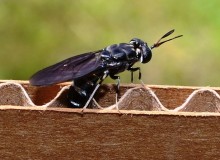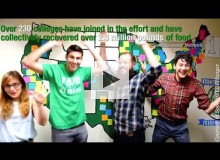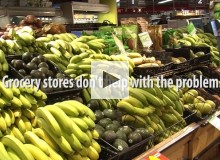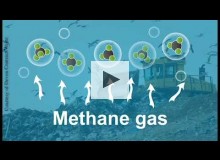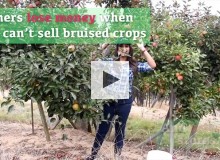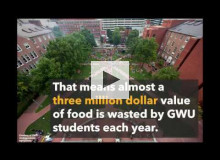Food Waste
Planet Forward Correspondent | Sewanee: The University of the South
Undergraduate student Chris Hornsby ('19) studies black soldier fly larvae as a possible means of closed-loop waste processing and livestock feeding at Sewanee's University Farm.
The George Washington University
Where does all the food waste that we throw in the trash and discard really end up and how can we ensure that it will not go to waste?
The George Washington University
The Food Recovery Network, a nonprofit started by students at the University of Maryland, recovers unused food from university cafeterias and brings them to community members in need.
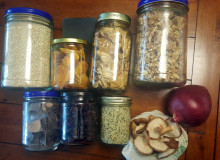
(Christopher Porter/Flickr)
SUNY Environmental Science and Forestry
As the population grows we are constantly asked the question of, how to manage our waste?
University of Wisconsin
Produce is held to high aesthetic standards. Many so-called "ugly" fruits and vegetables never make it past the farm, which can result in food waste.
University of Wisconsin-Madison
Find out what Community Supported Agriculture (CSA) is and why this new farming model is the answer to growing better food, reducing waste, creating connection and overall building a foundation for a more sustainable future.
George Washington University
The Compost Pedallers in Austin, Texas, started a creative initiative in 2012 that has helped increase awareness about composting, while lessening their city's carbon footprint and making it greener.
University of Wisconsin-Madison
Find out what Community Supported Agriculture (CSA) is and why this new farming model is the answer to growing better food, reducing waste, creating connection and overall building a foundation for a more sustainable future.
The George Washington University
Organizations like Hungry Harvest are working to reduce food waste by selling "ugly" produce.
The George Washington University
Volunteer-led efforts of GW students to create a composting program help to reduce food waste on campus.

